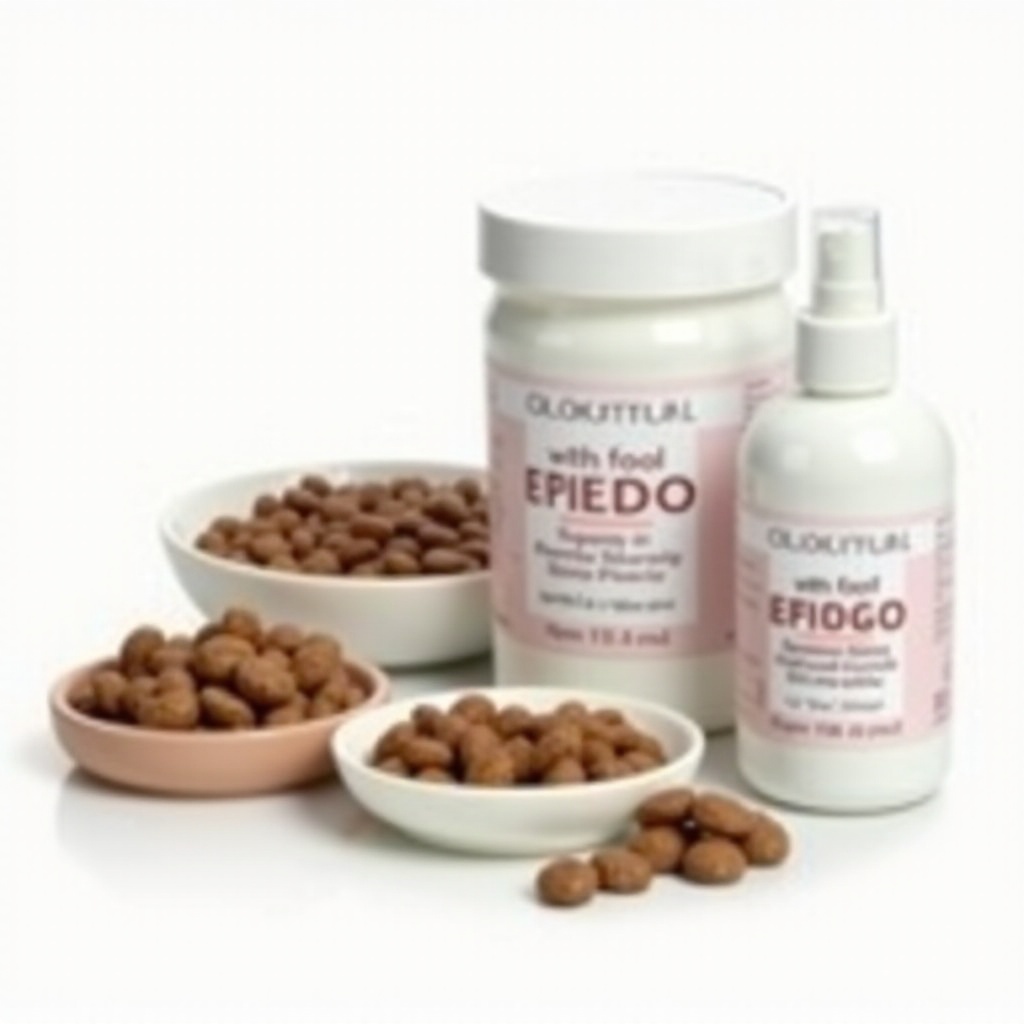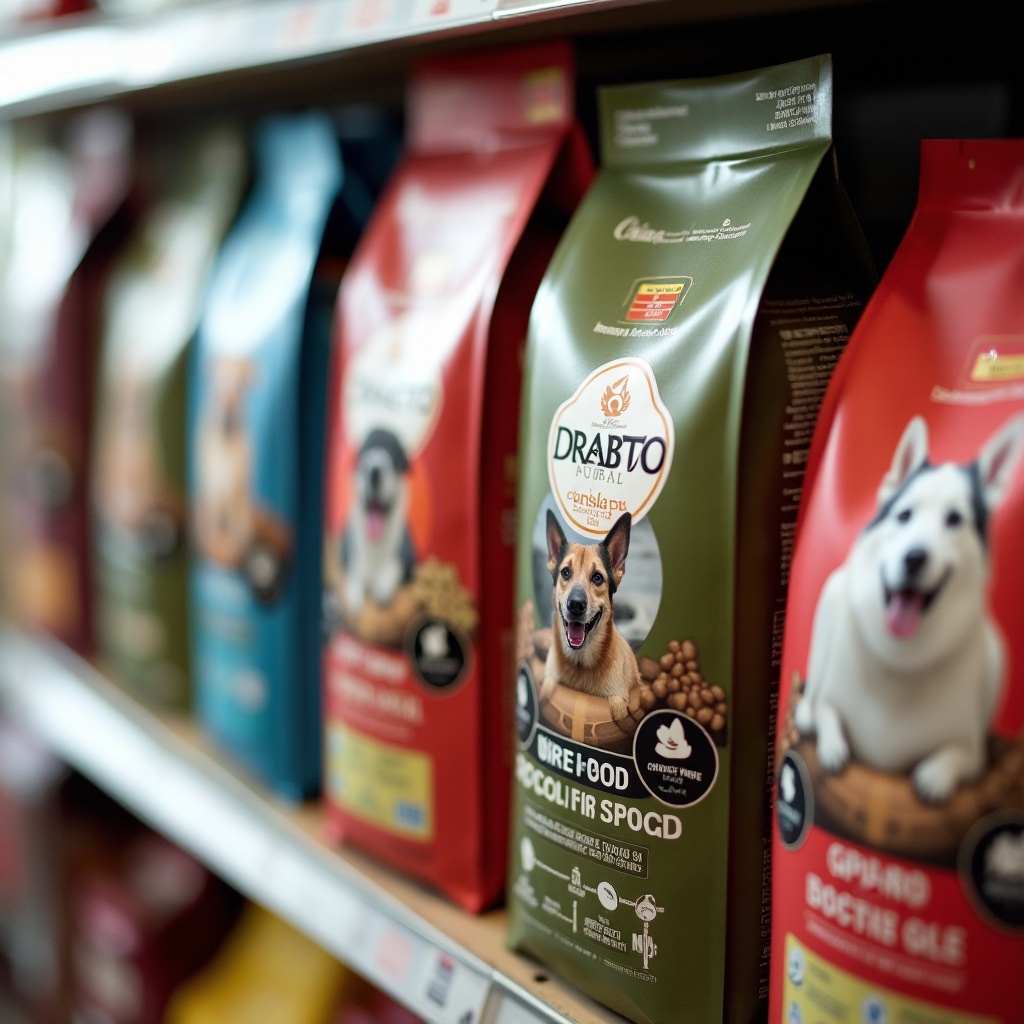Introduction
When a beloved dog is diagnosed with cancer, it can be an overwhelming experience for any pet owner. Nutrition plays a crucial role in supporting a dog’s health during this challenging time. Choosing the best commercial dog food for cancer can provide essential nutrients that support the immune system, boost energy levels, and promote overall well-being.
In this blog, we’ll discuss what to look for in commercial dog food for dogs with cancer, present some of the top commercial options available in 2024, and provide useful feeding tips. Your pet’s diet can be a powerful tool in the fight against cancer, helping to enhance their quality of life.

Understanding Canine Cancer and Nutrition
Cancer in dogs, much like in humans, involves the uncontrolled growth of abnormal cells in the body. Several factors contribute to cancer in dogs, including genetics, environmental factors, and diet. While every case is unique, a common goal in managing canine cancer is to fortify the dog’s immune system and support overall health.
Proper nutrition is paramount. Dogs with cancer often have altered metabolisms, which means their bodies may process proteins, fats, and carbohydrates differently. Providing a tailored diet that matches their nutritional needs can aid in managing symptoms and enhancing their quality of life.
Balancing the dog’s diet with high-quality proteins, healthy fats, and minimal carbs can potentially slow the progression of cancer cells and strengthen the pet’s natural defenses. This underscores the importance of selecting the right commercial dog food for your dog with cancer.
What to Look for in Commercial Dog Food for Cancer
As we explore the options available, knowing what to look for can make choosing the right food easier. Here are some critical components to consider.
High-Quality Proteins
Proteins are the building blocks of the body and are critical for maintaining muscle mass and tissue repair. When it comes to feeding a dog with cancer, opt for food that lists high-quality protein sources, like chicken, beef, lamb, or fish, as the primary ingredient. This ensures that your dog receives the necessary amino acids for proper body function.
Limited Carbohydrates
Cancer cells thrive on carbohydrates for energy. Thus, dog foods that are low in carbohydrates are preferable. Seek out commercial options that limit grains and include healthier, low-glycemic choices like sweet potatoes or lentils. This can help in reducing the energy available to cancer cells while still providing necessary nutrients.
Healthy Fats
Healthy fats, especially omega-3 fatty acids, are vital for dogs with cancer. These fats offer anti-inflammatory benefits and support cellular health. Foods rich in salmon oil or flaxseed oil are excellent choices. They not only enhance the skin and coat’s health but also provide a crucial energy source for your canine friend.
Essential Nutrients and Supplements
In battling cancer, additional nutrients and supplements can be beneficial. Antioxidants, vitamins, and minerals support the immune system and can help combat oxidative stress in the body. Look for commercial dog foods fortified with these essential nutrients to ensure your dog gets balanced and comprehensive nutrition.

Top Commercial Dog Foods for Cancer in 2024
With the understanding of what to look for, let’s dive into some top commercial dog foods specifically designed to support dogs with cancer.
Product 1: Brand A – XYZ Formula
Brand A’s XYZ Formula is designed specifically for dogs with cancer. It contains high-quality proteins such as chicken and fish, which support muscle maintenance and repair. Limited in carbohydrates, it features sweet potatoes and peas as primary sources, reducing the sugar levels cancer cells rely on. Additionally, it is packed with omega-3 fatty acids from salmon oil and includes a blend of antioxidants and vitamins to bolster your dog’s immune system.
Product 2: Brand B – ABC Formula
Brand B’s ABC Formula is another excellent choice. This recipe highlights lean proteins like turkey and egg, focusing on high digestibility and nutrient absorption. Carbohydrates are kept to a minimum, with the inclusion of low-glycemic ingredients like quinoa. The formula is enriched with flaxseed oil for omega-3s and includes critical supplements such as glucosamine and chondroitin for joint health, along with a rich mix of antioxidants.
Product 3: Brand C – DEF Formula
Brand C’s DEF Formula offers a unique blend of proteins from duck and fish, ensuring an ample supply of necessary amino acids. It avoids common allergens like corn and wheat, instead opting for healthier carb sources like pumpkin and lentils. This formula also includes a significant amount of omega-3 and omega-6 fatty acids from fish and flaxseed oils. Additionally, it is fortified with probiotics and prebiotics to support gut health and enhance nutrient absorption.

Comparing Commercial and Homemade Dog Food Options
While commercial dog food provides convenience and nutritional completeness, homemade options can be tailored more precisely to your dog’s needs. Cooking for your dog allows you to control the quality of ingredients and adjust the diet based on their specific health requirements.
However, creating balanced homemade meals requires careful planning and consultation with a veterinary nutritionist. Mistakes in nutrient ratios can lead to deficiencies or excesses that might compromise your dog’s health. Commercial options, on the other hand, are formulated to meet standardized nutritional guidelines, ensuring a balanced diet.
Selecting between these options depends on your willingness to prepare meals and the specific health needs of your dog. Consulting your veterinarian can help determine the best choice for your pet’s condition.
Expert Tips for Feeding Dogs with Cancer
Ensuring the right feeding practices can make a significant difference in managing your dog’s condition.
Frequency and Portion Control
Feeding dogs with cancer smaller, more frequent meals can aid digestion and improve appetite. Instead of one or two large meals, try dividing their daily intake into three or four portions. This strategy can help in maintaining energy levels and reducing gastrointestinal discomfort.
Inclusion of Supplements
Supplements can play a crucial role. Omega-3 fatty acids, probiotics, and specific vitamins should be considered. Always discuss with your veterinarian before adding any supplements to ensure they’re necessary and administered in appropriate amounts.
Monitoring Dog’s Response
Regularly monitor your dog’s reaction to the diet. Keep an eye on changes in their weight, energy levels, and overall health. Adjust the diet as needed and consult your vet if any adverse changes are observed. This allows timely intervention and ensures your dog receives optimal nutritional support.
Conclusion
Choosing the right commercial dog food for a dog with cancer can significantly impact their quality of life and health outcomes. By focusing on high-quality proteins, minimizing carbohydrates, incorporating healthy fats, and ensuring essential nutrients, you can provide your dog with the best possible nutrition. Regular consultations with your vet and careful monitoring of your dog’s response to the diet are vital steps in managing their health through nutrition.
Frequently Asked Questions
Can diet cure canine cancer?
No, diet alone cannot cure canine cancer, but it can help support overall health, manage symptoms, and improve the quality of life for dogs undergoing treatment.
How often should I feed my dog with cancer?
It’s typically recommended to feed dogs with cancer smaller, more frequent meals rather than one or two large meals to aid digestion and maintain energy levels.
Are there specific ingredients to avoid in commercial dog food for cancer?
Yes, it’s best to avoid high carbohydrate foods, artificial preservatives, and fillers. Focus on natural ingredients with high-quality proteins and healthy fats instead.
